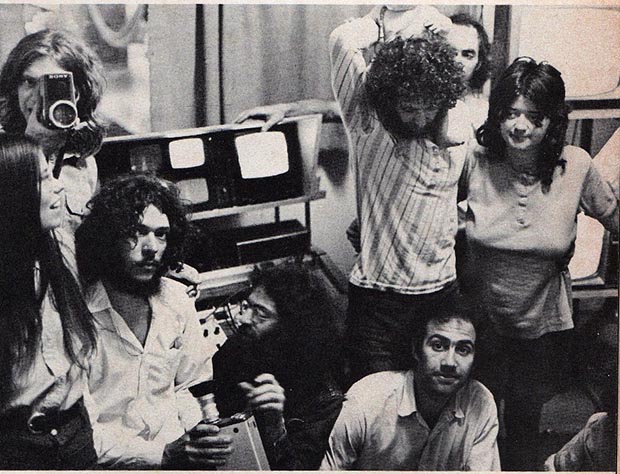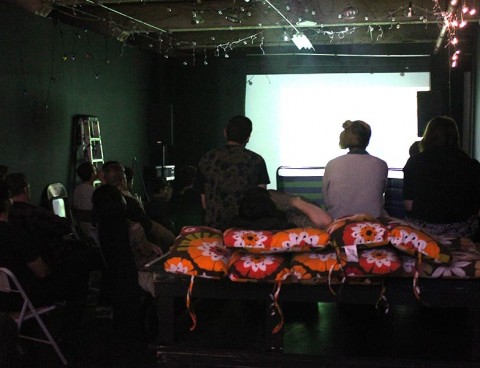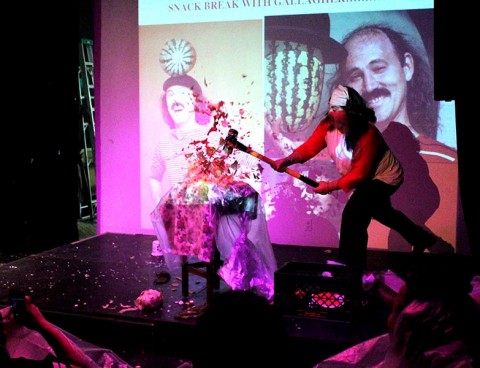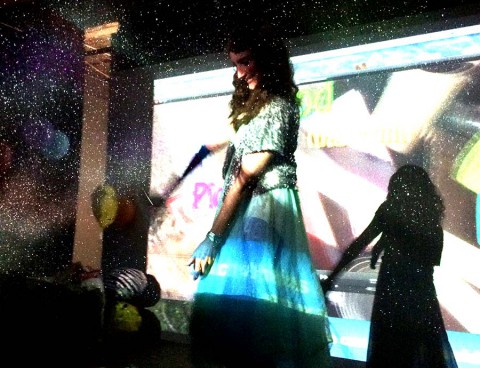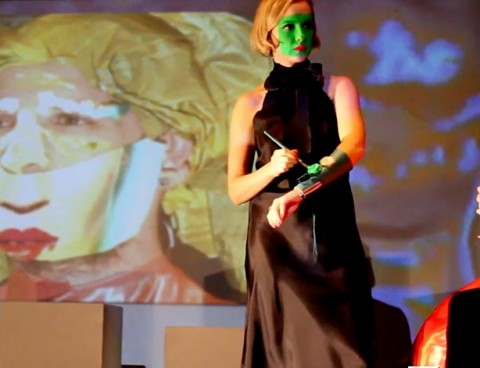Program
In October 2014, Kimball presented a variety show of short clips from the work of video collective Videofreex. The screening included clips from “Subject to Change,” Lanesville TV, and footage from Woodstock, the streets of Chicago and New York City. Rated R for drugs, nudity, strong language, and radical politics. Broadcasts will be followed by a Q & A with Videofreex members Skip Blumberg and Nancy Cain.
Artists Statement
1969 was a year marked by student protests, the Woodstock Music Festival, the burgeoning alternative culture revolution, and the beginning of what was called the “video revolution,” with the invention of the first portable video cameras. Hoping to get an inside scoop on the youth culture, CBS assigned a group of young video artists who’d just met at Woodstock, and who called themselves “the Videofreex,” to document their travels across the country. A few months later, to the dismay of the network, the collective returned with raw footage of interviews with radical movement leaders like Yippie Abbie Hoffman, Black Panther Fred Hampton, legendary Bay Area radio station Ksan, a progressive school, and avant-garde performance artists.
Their resulting pilot, “Subject to Change,” never aired on CBS. But the group stayed together and built an underground TV station. In 1971, the ten-plus Videofreex moved the whole operation upstate to Lanesville, New York, where they launched the world’s first low-power unlicensed pirate TV station. In sharp contrast to the corporate clockwork of broadcast cable TV, the Videofreex produced several hundred live TV broadcasts with live coverage, experimental video art, and episodes of their adventures in counterculture. Self-described “electronic Johnny Appleseeds,” the Freex were precursors for public access, video journalism, reality TV, music videos, Saturday Night Live-style sketch comedy, crowd sourcing, and art collectives. The documentary feature “Here Come the Videofreex,” by filmmakers Jon Nealon and Jenny Raskin, is expected to be released in 2015.
Video Trailer


